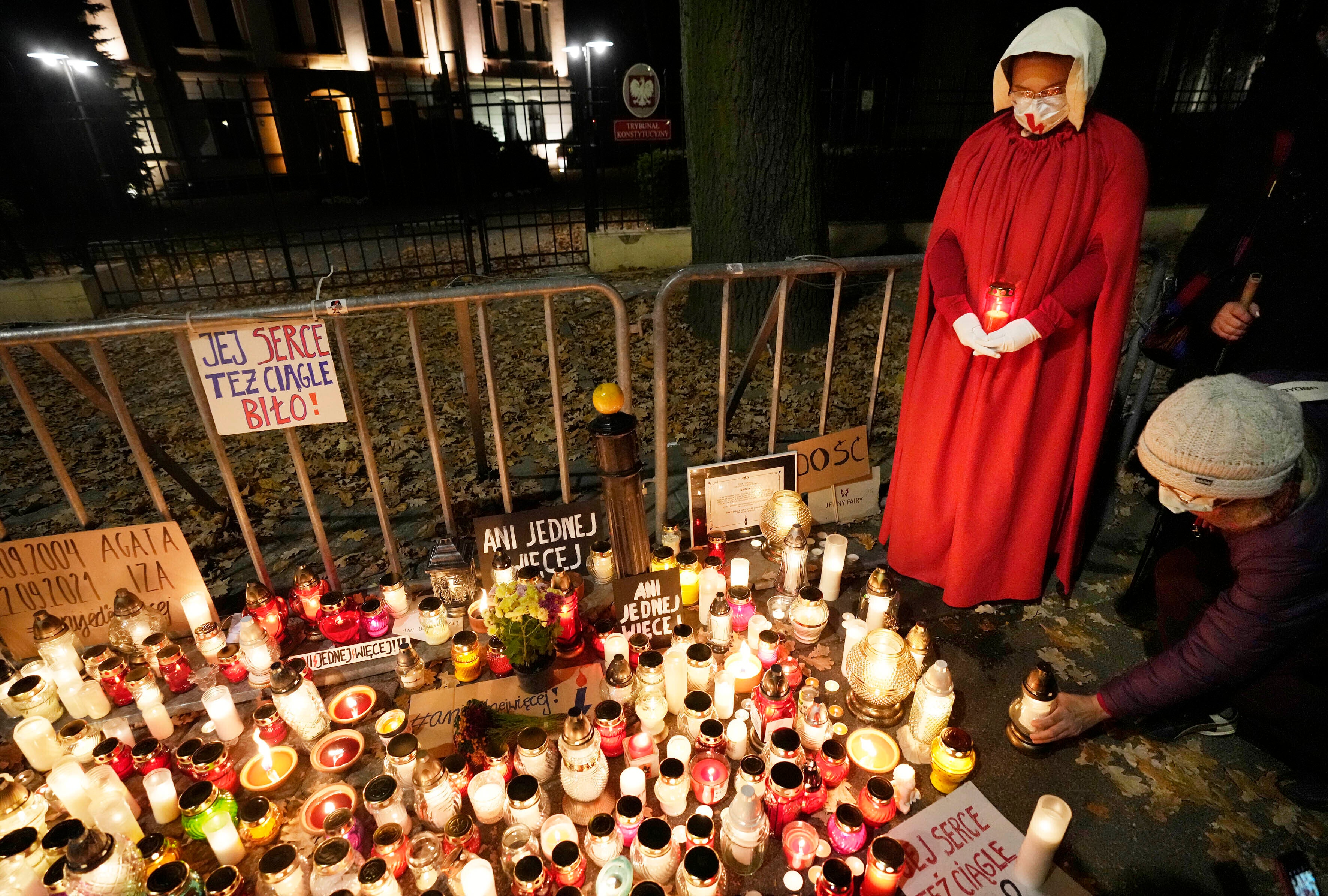Pregnant woman's death puts spotlight on Polish abortion law
A Polish hospital says doctors and midwives did everything they could to save the lives of a pregnant woman and her fetus in a case that has put the spotlight on new restrictions on Poland's abortion law

Your support helps us to tell the story
From reproductive rights to climate change to Big Tech, The Independent is on the ground when the story is developing. Whether it's investigating the financials of Elon Musk's pro-Trump PAC or producing our latest documentary, 'The A Word', which shines a light on the American women fighting for reproductive rights, we know how important it is to parse out the facts from the messaging.
At such a critical moment in US history, we need reporters on the ground. Your donation allows us to keep sending journalists to speak to both sides of the story.
The Independent is trusted by Americans across the entire political spectrum. And unlike many other quality news outlets, we choose not to lock Americans out of our reporting and analysis with paywalls. We believe quality journalism should be available to everyone, paid for by those who can afford it.
Your support makes all the difference.A Polish hospital said Tuesday that doctors and midwives did everything they could to save the lives of a pregnant woman and her fetus in a case that has put the spotlight on a new restriction on Poland's abortion law.
The 30-year-old woman died of septic shock in her 22nd week of pregnancy. Doctors did not perform an abortion, even though her fetus was lacking amniotic fluid, according to a lawyer for the family.
Reproductive rights activists say she is the first person to die as a result of a recent restriction of Poland’s abortion law.
The woman, identified only as Izabela, died in September but her case was only made public Friday, triggering anger among some Poles and protests in Warsaw Krakow and elsewhere on Monday evening. People lit candles for her in an evening vigil.
Before the new restriction, women in Poland could have abortions only in three cases: if the pregnancy results from a crime like rape; if the woman's life is at risk; or in the case of severe fetal deformities. But the Constitutional Tribunal, under the influence of Poland’s conservative ruling party, ruled last year that abortions for congenital defects were not constitutional.
Women's rights activists say doctors in Poland now wait for a fetus with no chance of survival to die in the womb rather than perform an abortion.
The hospital where the woman died issued a statement Tuesday saying they were “joined in pain” with her loved ones and others mourning her, and saying its staff had done everything to save her and the fetus. The family lawyer said she left behind a husband and a daughter.
“The only factor guiding the medical procedure was concern for the health and life of the patient and the fetus. Doctors and midwives did everything in their power, they fought a difficult battle for the patient and her child,” said the statement from the County Hospital in Pszczyna in southern Poland.
The hospital added that prosecutors are investigating the case but said “all medical decisions were made taking into account the legal provisions and standards of conduct in force in Poland.”
An ultra-conservative organization that lobbied for the abortion restriction, Ordo Iuris, faced accusations of being responsible for the woman's death. The organization's president, Jerzy Kwasniewski, warned that people should not jump to any conclusions about what happened.
Both Kwasniewski and Radoslaw Fogiel, a spokesman for Poland's conservative ruling party, said under the existing law, a woman whose life is at risk has the right to legally terminate her pregnancy.
Fogiel said the ruling Law and Justice party does not plan changes to the abortion law due to the case.